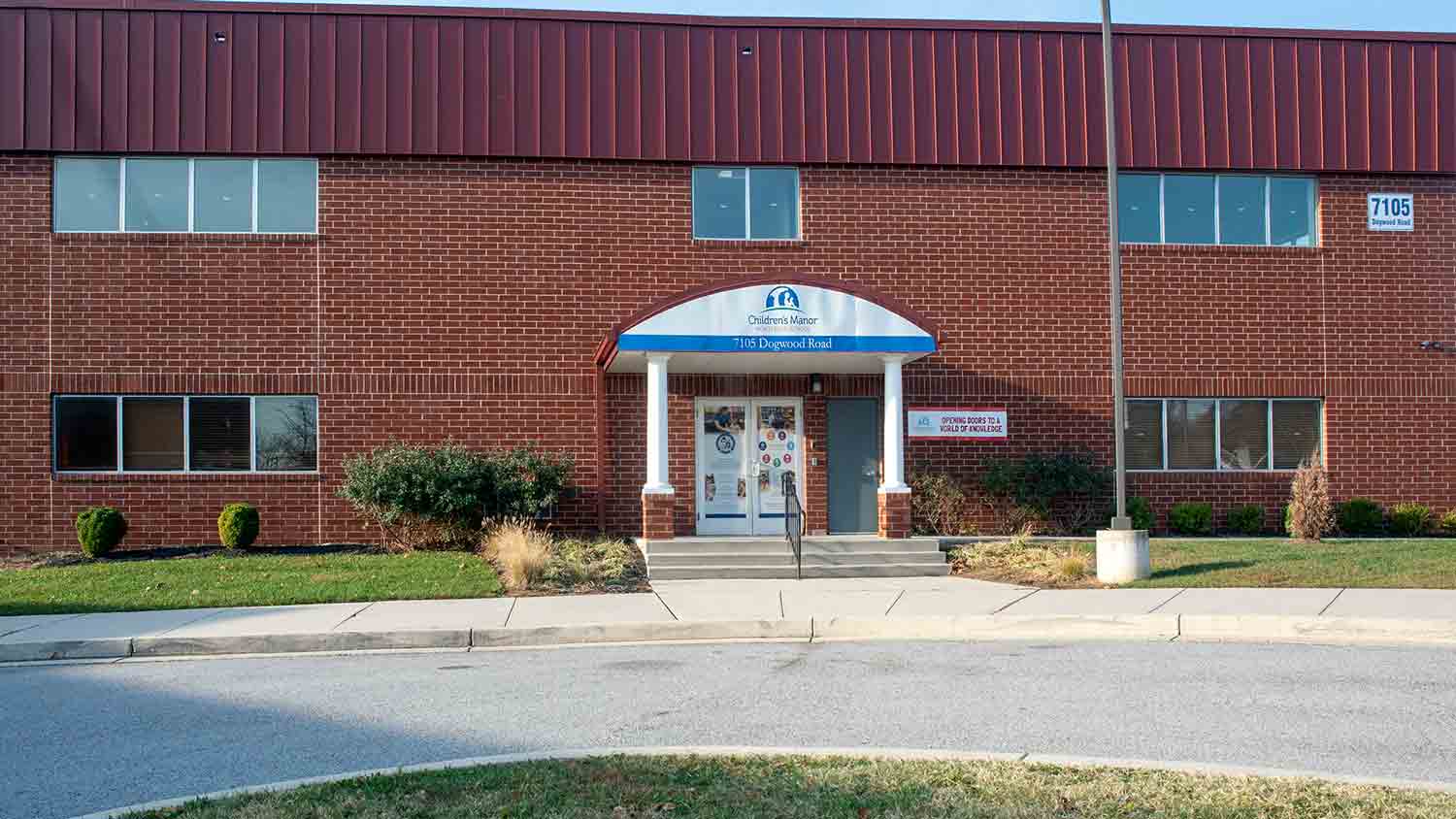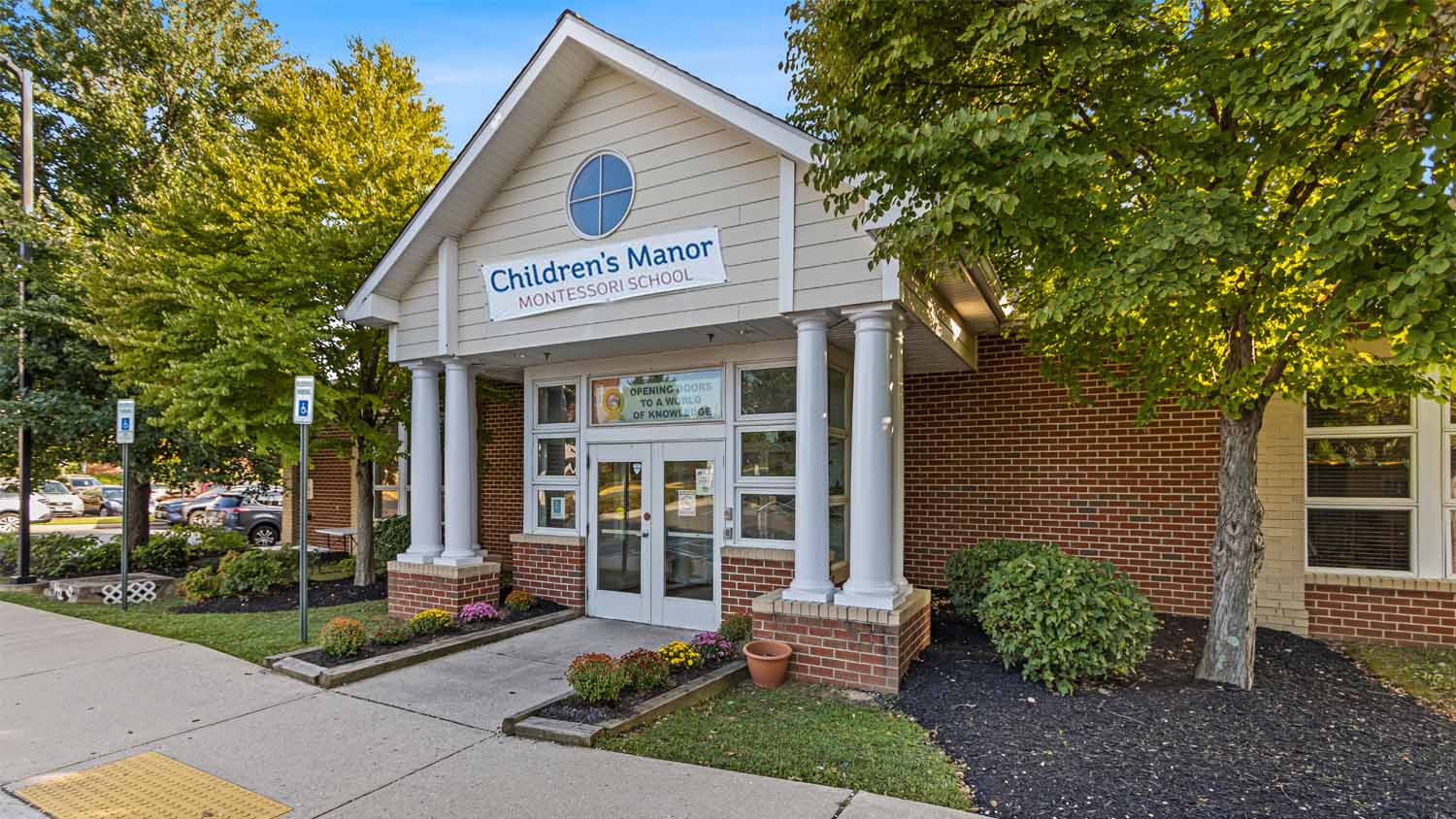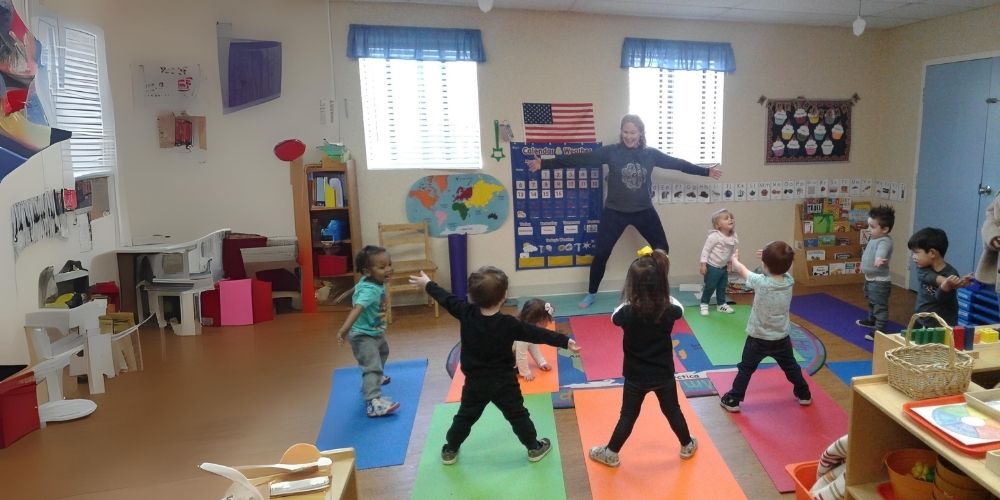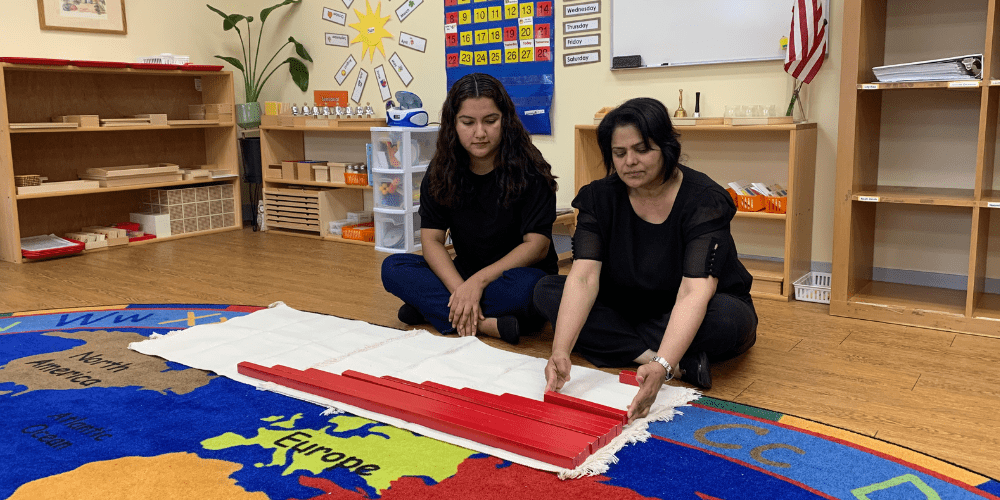About
Elementary Program
Our Elementary program seeks to develop higher-order thinking and emphasize conceptual understanding through interdisciplinary learning. With a certified Montessori Elementary teacher and small class sizes (average 14:1 student to teacher ratio), children are challenged to develop critical thought, enhance oral & presentation skills and synthesize information across various subject areas in a personalized and supportive learning environment. Through a combination of individual/small group learning and independent work using the Montessori method, children are given the foundations for success for their middle and high school years.
Continuing in a Montessori environment into the foundational Elementary years allows our students to further their academic progress and social & emotional development while working with familiar teachers who can provide individualized encouragement and support. We have been offering this Lower Elementary Program at our Ellicott City location for over two decades, and our students have been consistently performing 1-3 grade levels above peers in public schools.
Baltimore, Ellicott City, Forest Hill, Owings Mills, and Rockville offer Grade 1.
Practical Life
Sensorial
Geography/Culture
Mathematics
Language
Elementary Schedule
Enrichment
Sample Classroom Tour
Elementary Schedule
9:00 – 9:15 am – Circle Time
- Opening greeting and songs
- Current event discussion
- Daily messages
- Journal
9:15 am – 12:00 pm & 1:00 – 4:00 pm – Individual/Small Group Lessons & Independent Work
Activities involve group/individual participation and/or teacher demonstrations/presentations of Montessori learning activities the student may later choose to work on during individual work time:
- Integrated half-hour of recess and Specialty Programs
12:00 – 1:00 pm – Lunch
4:00 – 5:45 pm – Enrichment
- Half hour blocks of independent work, homework time, and/or organized games
- Seasonal activities include Drama Club, Lego League, and piano and guitar lessons
5:45 – 6:00 pm – Group Story
Enrichment
Enrichment Programs
Enrichment programs are integrated into the general daily schedule, at least once a week:
Technology
Spanish
Music
Physical Education & Yoga
Service Learning
Field Trips & Outreach
The Elementary programs has 4-6 field trips and 3-5 outreach programs per academic year.
The purpose of these programs are to enrich and teach our students about culture, hygiene, science, our physical environment, etc.
In the past, we have visited the Maryland Science Center, National Aquarium, National Museum of Natural History, Air & Space Museum, Sharp’s Farm, Walter’s Art Gallery, Baltimore Symphony Orchestra and the Maryland Zoo.
Sample Classroom Tour
Elementary Schedule
9:00 – 9:15 am – Circle Time
- Opening greeting and songs
- Current event discussion
- Daily messages
- Journal
9:15 am – 12:00 pm & 1:00 – 4:00 pm – Individual/Small Group Lessons & Independent Work
Activities involve group/individual participation and/or teacher demonstrations/presentations of Montessori learning activities the student may later choose to work on during individual work time:
- Integrated half-hour of recess and Specialty Programs
12:00 – 1:00 pm – Lunch
4:00 – 5:45 pm – Enrichment
- Half hour blocks of independent work, homework time, and/or organized games
- Seasonal activities include Drama Club, Lego League, and piano and guitar lessons
5:45 – 6:00 pm – Group Story
Enrichment
Enrichment Programs
Enrichment programs are integrated into the general daily schedule, at least once a week:
Technology
Spanish
Music
Physical Education & Yoga
Service Learning
Field Trips & Outreach
The Elementary programs has 4-6 field trips and 3-5 outreach programs per academic year.
The purpose of these programs are to enrich and teach our students about culture, hygiene, science, our physical environment, etc.
In the past, we have visited the Maryland Science Center, National Aquarium, National Museum of Natural History, Air & Space Museum, Sharp’s Farm, Walter’s Art Gallery, Baltimore Symphony Orchestra and the Maryland Zoo.










